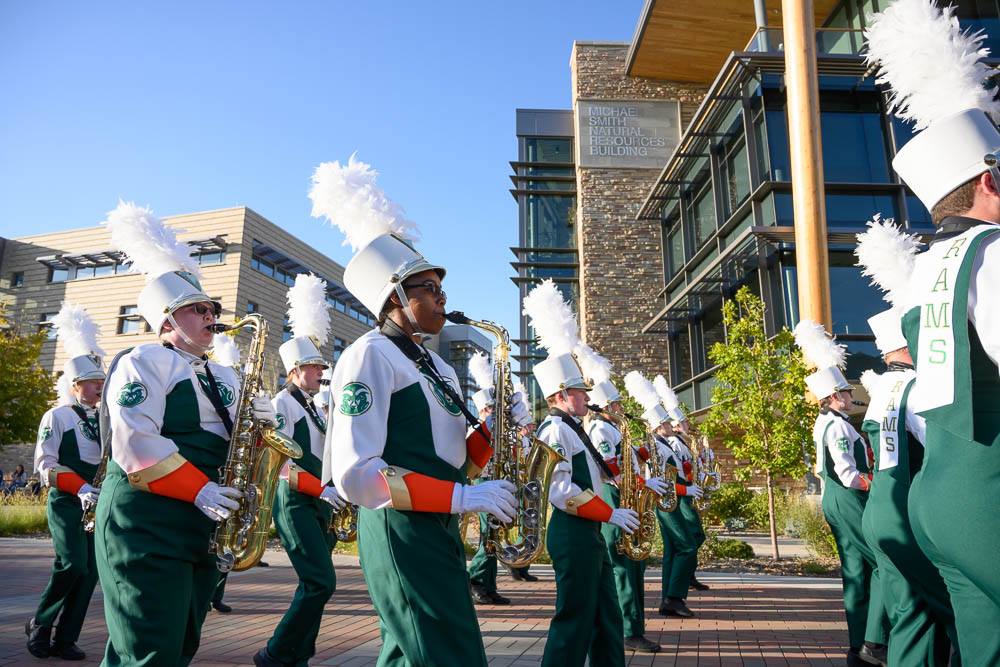In the age of coronavirus, things move at a breakneck speed. In recent weeks, as universities on the East Coast were beginning to shut down, students at Colorado colleges waited and watched anxiously, knowing it wasn’t a matter of if, but rather when. For students pursuing a music major, another question arose that needed immediate and important answers — how would this work?
For students at Colorado State University (CSU) and the University of Denver’s (DU) Lamont School of Music, those answers were not clear. The decision to move classes online only became active after spring break, and students were left to watch other schools make their transitions while nervously anticipating their own. “Largely, the reaction has broadly been confusion,” senior Eric Paricio said of CSU’s decision to make the transition online. “Many of the professors don’t know what the expectations are for ensembles or anything that leads to a performance.”
Music performance and pipe organ minor Zachary Shepard has mainly seen his peers and professors react with sadness. “As musicians, we thrive in settings where we have the chance to collaborate with others and grow as a group,” he explained. “I think the predominant view is sadness in not having the opportunity to continue working with our fellow musicians and friends.”
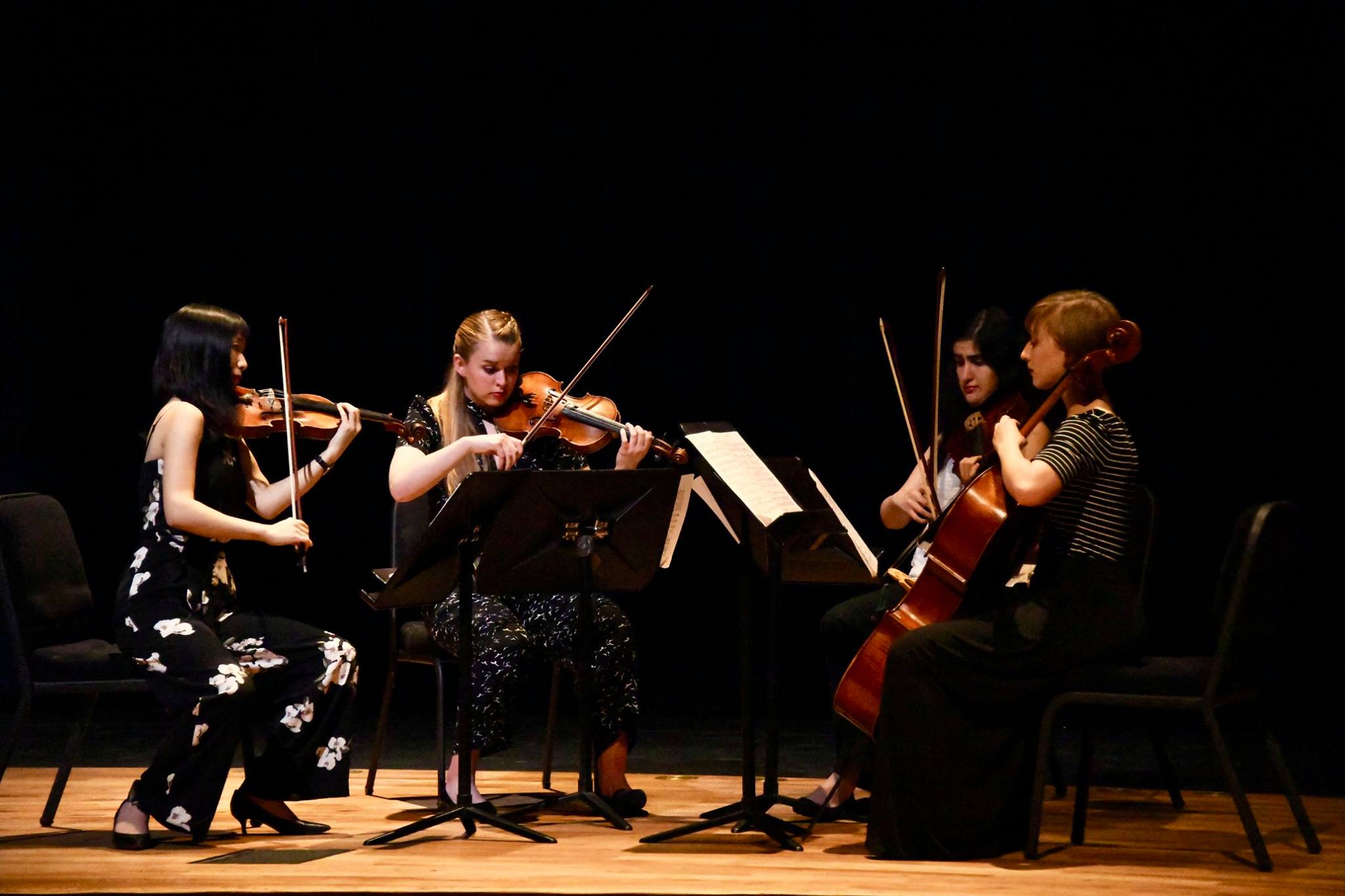
At DU, students are reacting similarly to those at CSU. Paige Billow, a jazz performance major, emphasized how much uncertainty is coming along with the impending transition. “The whole music community is trying to support each other through this, but it’s not something that anyone was prepared for or could have anticipated,” she said. “The DU faculty are doing their best and working very hard to organize, but it certainly won’t be the same as playing music together in a live setting.”
Meanwhile, at the University of Colorado Boulder’s College of Music, (CU Boulder) students and faculty only had the luxury of a single weekend before launching immediately into remote learning. Freshman jazz saxophone major Carter DeSouza expressed his frustration with the situation. “The most difficult part is that my major is music performance,” he explained. “The second half of that title shows how much this has put a damper on my learning — I have nothing to work towards in terms of concerts and performances.”
Another aspect of this transition that has been particularly hard for freshmen is the insistence of many schools that dorm-living students return to their own homes, if they can. Without access to practice rooms and the resources they have in the physical housing of the music schools, students are often left without the same motivating factors that kept them focused on their progress. At CU Boulder, students were encouraged to return home after incidents of vandalism occurred in the residence halls.
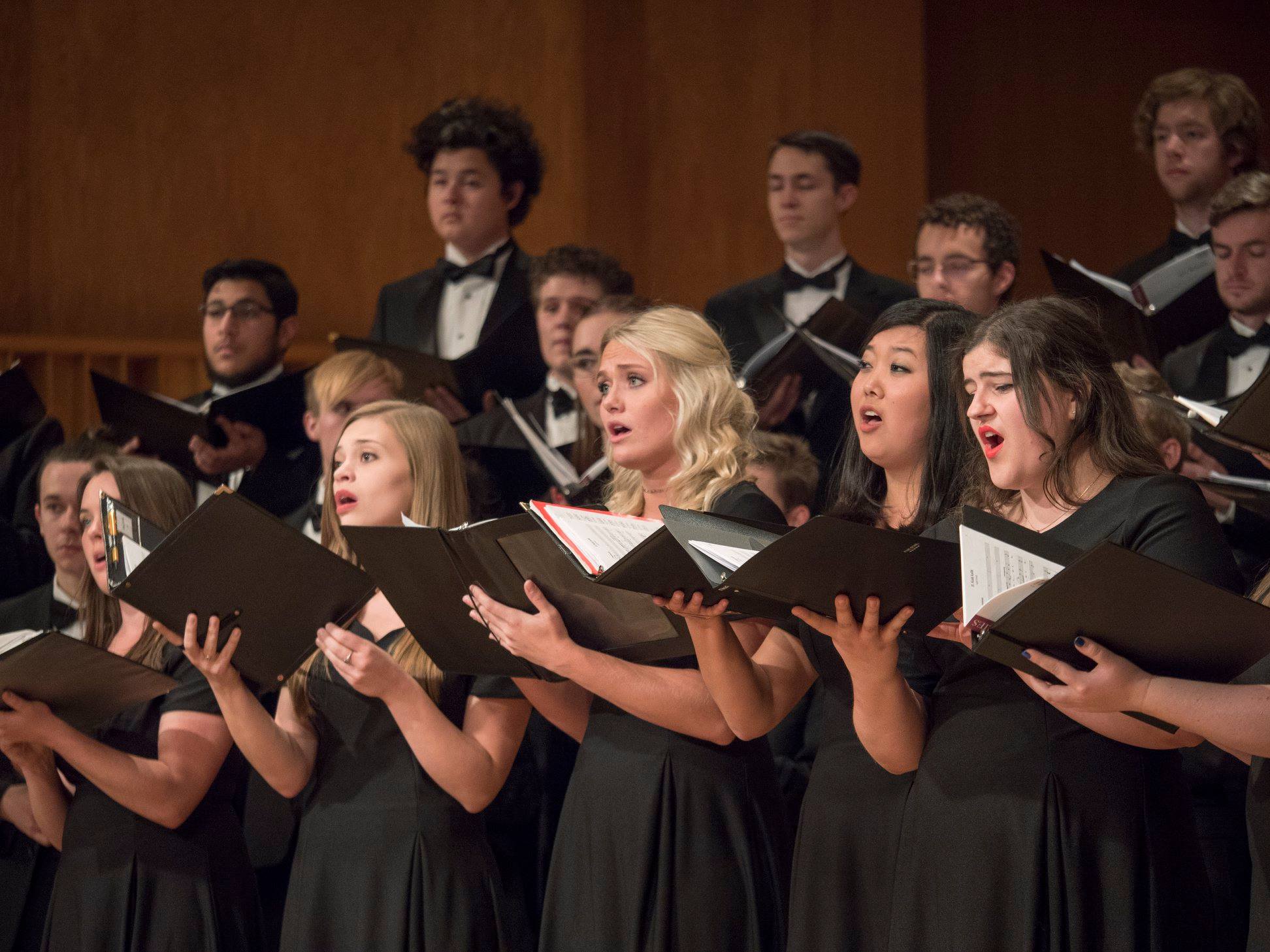
“I went home because the dorms didn’t feel safe anymore,” DeSouza said of his decision to leave. However, not having access to the practice rooms in the Imig Music Building anymore has made it difficult for him to find motivation. “At CU [Boulder] we have practice rooms that are made boring for a reason — we need a place to focus on our music and not get distracted,” he said. “That is a lot harder to do at home, so I have literally been locking myself in a room in my basement to force myself to practice.”
For woodwind majors, losing reed-making facilities has been a great difficulty and a resource that schools are not sure how to supplement. At CU Boulder, students still retain swipe access to the rooms in the music building but are discouraged from utilizing resources to promote good social distancing practices. Senior Ethan Shuler, a bassoon major, describes reed-making as an arduous process and one where certain resources are needed from the school to progress.
“You need really specialized equipment that they have at school, but they’re encouraging people not to go to school. Now, we need to pay money for bassoon cane that’s already processed to that state. And the freshmen and sophomores who are much less experienced with making reeds, they can’t just like, do it at home, and that’s good enough. They need attention from grad students and the professor in improving them. They’re kind of screwed in that aspect,” said Shuler.
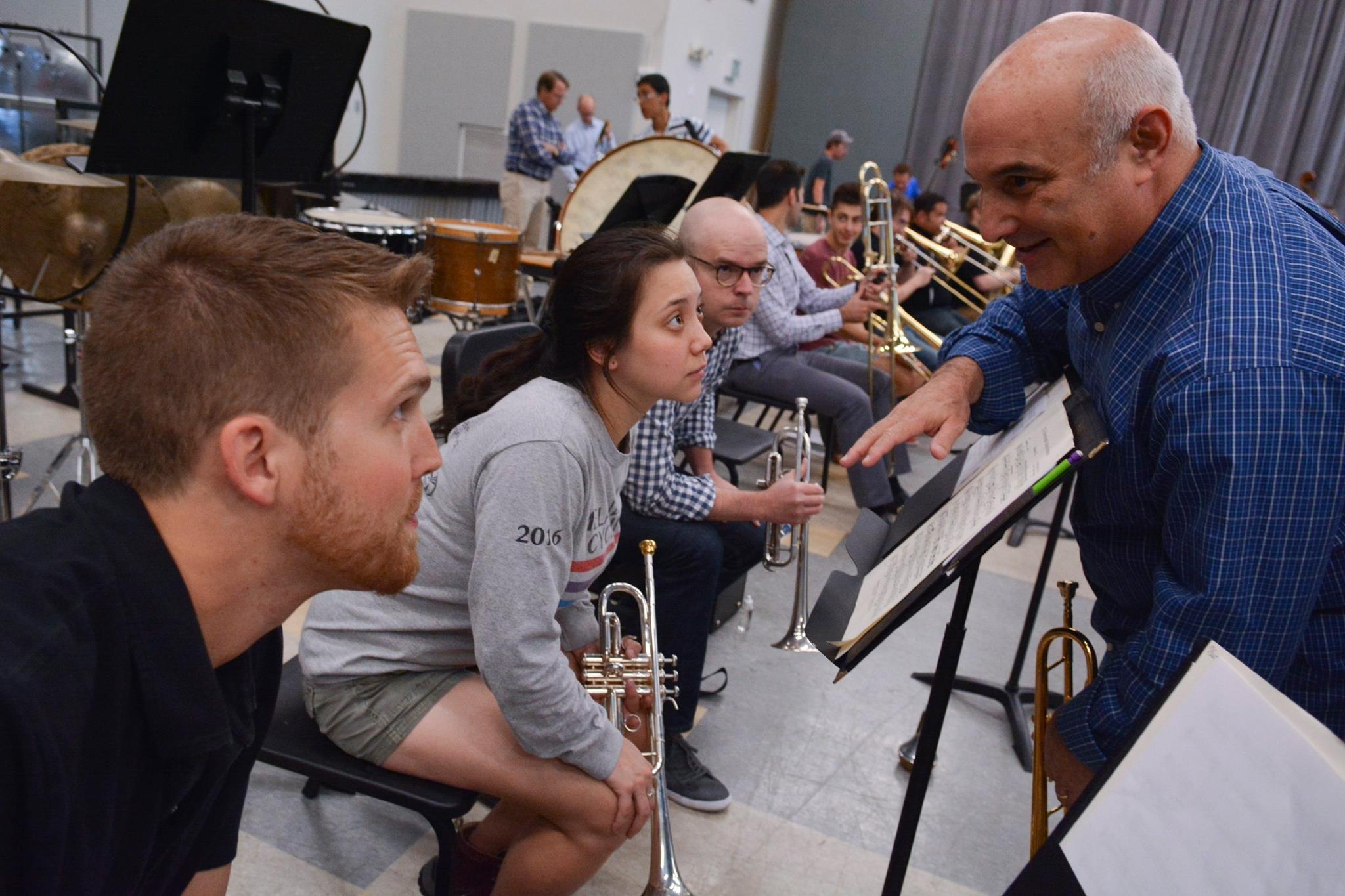
Shepard spoke about the difficulties he’s going to face with his pipe organ minor. “For most musicians, students can still take their instruments home with them to practice — however, I do not have the blessing of having a pipe organ installed in my home,” he expressed. “As of right now, I don’t know whether I will be given access to come in and use the school organs, but if not, I am functionally unable to even practice my instrument.”
At CU Boulder, Senior Associate Dean and Professor of Jazz Studies Dr. John Davis explained that the university is doing its best to help accommodate students who are losing access to instruments or resources — especially piano and percussion majors — by having students sign loan agreements. “We had to purchase some electric keyboards for those students who absolutely had no access to a keyboard — again, it’s not the same but at least it’s something they can practice on and then have lessons with their instructor,” he said.
At the University of Denver, Dr. Keith Ward, director of the Lamont School of Music, explained the school’s similar approach to accommodating students who don’t have access to instruments or resources. “We have checked out some instruments, such as percussion instruments and some pianos, to those students who do not have those instruments,” he said. “Our organ students are practicing at area churches.”
For many music major seniors, this move to remote learning has been felt in very impactful and heartbreaking ways. Aside from having a simple graduation ceremony, other final opportunities students will miss out on include participating in productions put on by music schools. CU Boulder’s Eklund Opera Program was set to open The Marriage of Figaro on March 13, just two days after the announcement of remote learning was released to the student population. At DU, the Lamont Opera Program was gearing up to perform The Magic Flute, opening on April 23, but now the event is cancelled. Paricio expressed his disappointment at CSU’s The Pirates of Penzance being cancelled. “I was so excited to share my interpretation of Major General Stanley with my family and friends,” he said. “Now, in the best-case scenario, I might get the chance to do so in the fall as I complete my master’s program.”
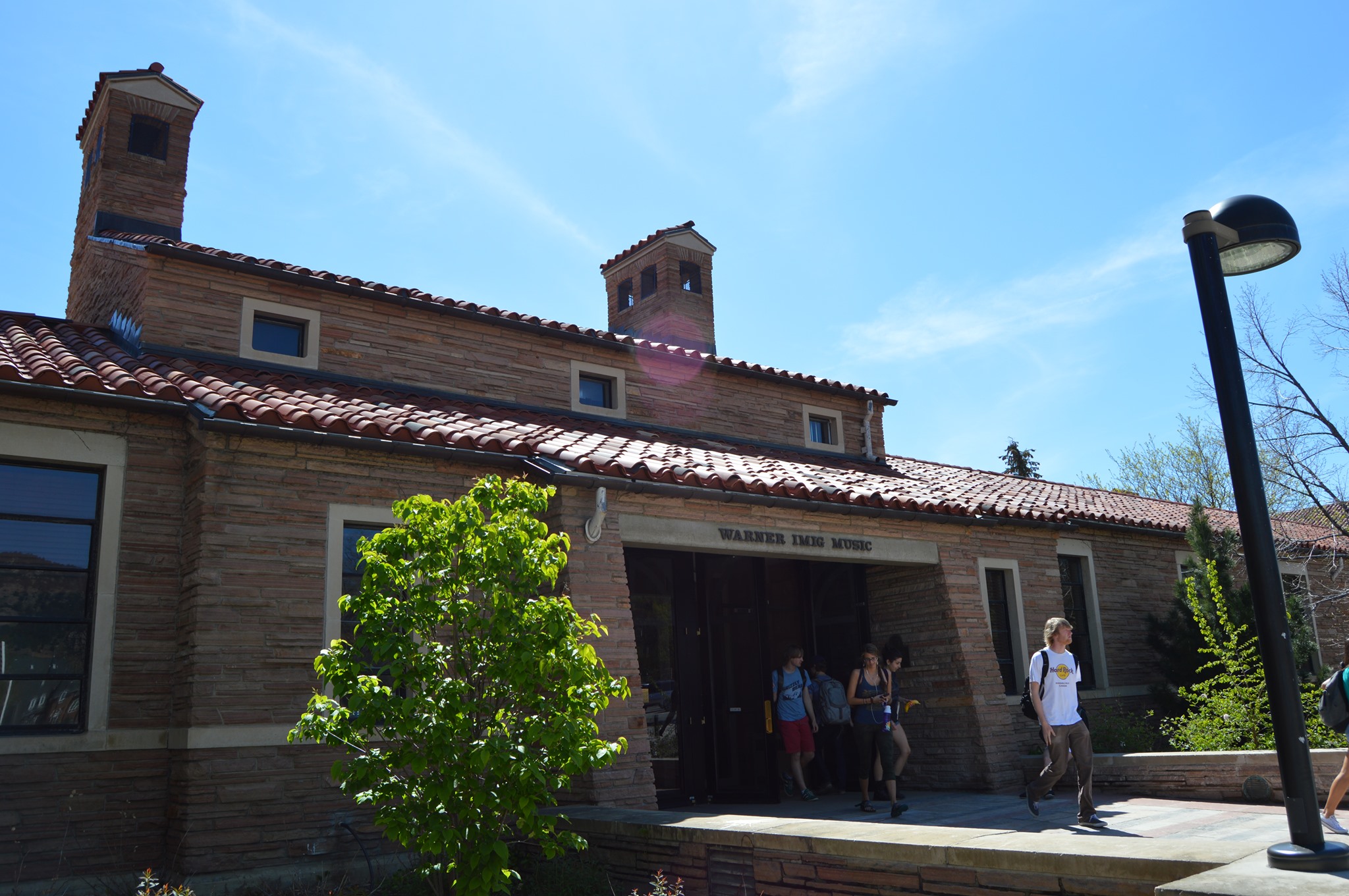
Completion of a music major almost always includes performing a senior recital, something students are now unable to do. Seen by many as the capstone of their degree, this tradition is a showcase of four years of hard work and practice. When asked if he felt as though he would be missing out on opportunities in his last semester, Paricio answered with an emphatic affirmative. “I have been looking forward to giving my recital for four years, having sat through countless recitals for my peers,” he said. “This was finally my chance to share my progress and all the work I’ve done over my college career, and now it will be reduced to 15 minutes of recorded music that will only be heard by the voice faculty.”
Shuler experienced a similar loss as the announcement that classes were moving online came a mere four days before his own senior recital. Dr. Davis is highly aware of the grief seniors are feeling at losing their senior recital experience.
“That’s the culmination of their performance degree. It’s the chance for them, after all this work, to play at the highest level they’ve now achieved in front of friends, family, the public, have a recording of it, etc. We can’t do that now. We can’t put two people in the same room even at the same time. A lot of these instrumental areas have just had to play only their part, so not with a piano or other musicians. Well, that’s hardly a substitute, but, you know, they’re demonstrating they’re meeting the needs of the benchmark for having prepared and reached a certain level,” lamented Dr. Davis.
The impacts of COVID-19 can be felt across the board. With some student jobs that cannot transition to remote work, many students are worried about losing teaching assistant and learning assistant jobs they rely on. Music faculty also rely on outside performance jobs to supplement their income — all of those opportunities now gone. Noah Beck, a bassoon major at CSU, spoke about the difficulties his professors and fellow students are facing, not just academically, but financially as well.
“There are a lot of musicians with families that are just absolutely screwed right now. A professor I know was banking on a lot of annual gigs during Easter to help alleviate financial strain until the summer when he gets another set of gigs, but now all of them are cancelled, and he’s barely scraping by. A lot of us depend on gigs, teaching lessons and working part-time jobs, and now our financial fall-backs are all gone,” said Beck.
Music schools are similarly facing huge financial struggles as institutions. Dr. Davis explained that CU Boulder’s College of Music is in constant contact with music schools across the country, commiserating about the challenges they are now facing in providing resources for faculty and students in this unprecedented time. “The campus, along with the system, along with all these colleges and universities across the nation are all getting pummeled financially,” he said. “Rather than be able to say, ‘oh, here’s some funds, let’s put it this direction or that direction,’ schools are asked to dip into their reserves until they can’t, for any of these kinds of needs.”
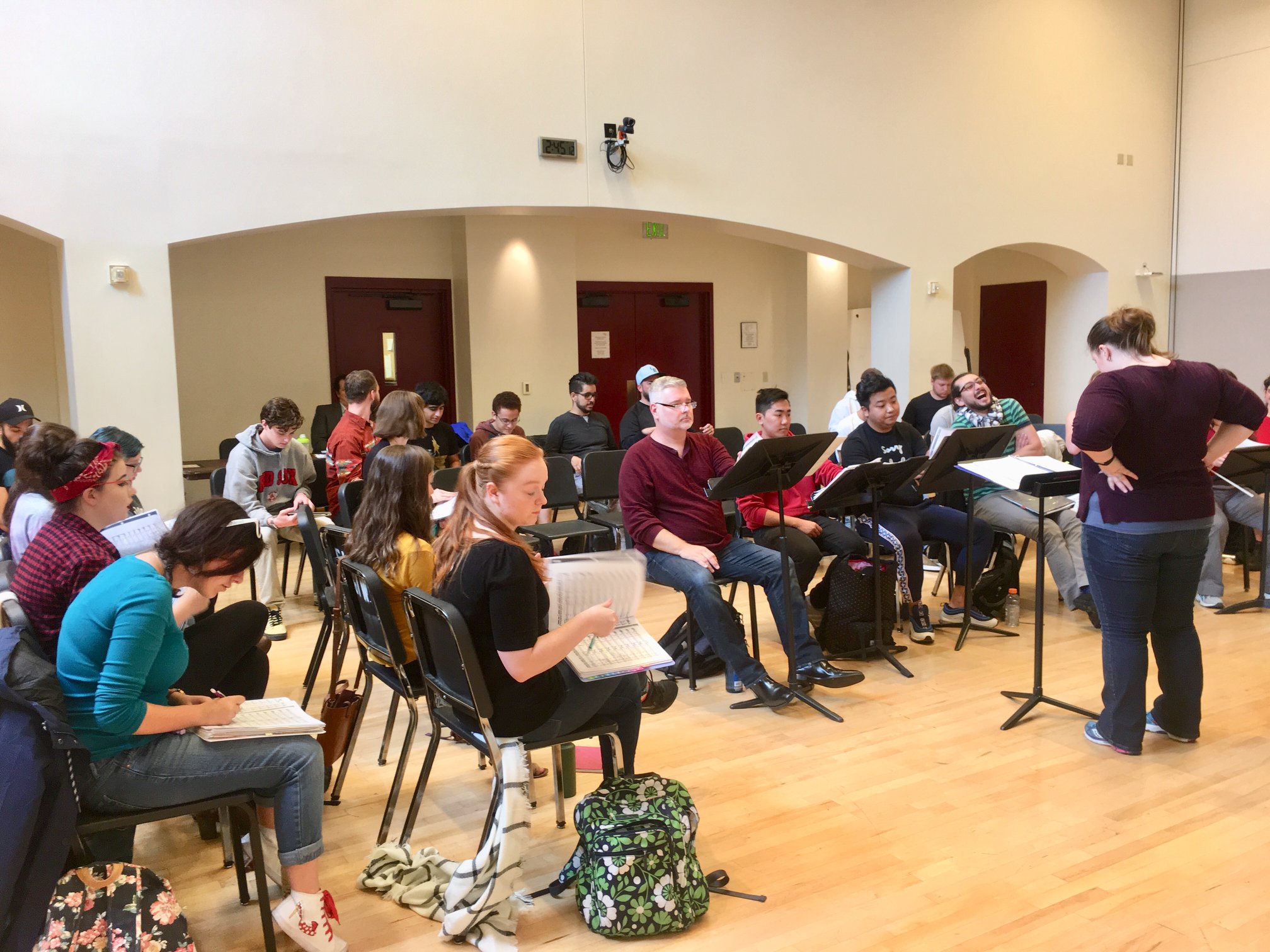
The biggest loss music students and faculty are feeling so far, and one that other university music students should anticipate feeling after “returning” to school, is losing opportunities for collaboration and community. Luckily, music majors at CU Boulder are getting creative with ways to continue their collaboration virtually. “There’s a Facebook group that a couple of our friends made for a class like a couple of years ago — it’s just like a place for people to post creative content. No one ever used it, but now it’s blowing up, and people are posting videos of them playing every day,” said Shuler.
As music schools look ahead to the fall semester, there is some trepidation about what the world will look like after it emerges from its days of social isolation and quarantine. Dr. Davis emphasizes the long-lasting impacts coronavirus may have on the school for years to come. “If campuses are still in remote learning in the fall, you may have a percentage of current high school seniors who are planning to enroll in university who are going to say, ‘Well, I think I’ll take a year off. I’m not sure now,'” he explained. “That reduces the campus’s operational funds, more and more — and if there’s a reduction in the numbers of new students enrolling, we’re gonna feel that for four years.” Dr. Ward also cautions against thinking that the academic world will be the same after this.
“I don’t think higher education will be returning to what it knew as normal — that is, pre-COVID. While ensemble rehearsals and lessons will return to what we knew, I think the introduction of virtual learning on the scale we have had to adapt will accelerate the move toward more online or hybrid learning environments. Higher education is a dynamic and complex industry. There will not be one single direction that will result from our responses to the pandemic, but we will be influenced by this monumental shift we have had to make in a very short amount of time. Academics are a reflective lot — this experience we are living will influence us,” said Dr. Ward.
Looking forward to the remainder of the semester and for some — the remainder of their college careers — students and faculty are leaning on the community they built in practice room-lined hallways and concert halls. Dr. Ward spoke witness to the DU faculty’s resilient spirit when the announcement of the transition took place. “Initially, some faculty felt overwhelmed,” he said. “But here’s the beautiful thing — faculty came together as a community to meet this challenge. They shared ideas freely, offering assistance to colleagues who were less experienced with technology. They approached this challenge with a can-do spirit, both individually and collectively, that was awe-inspiring.”
Just as the faculty are doing, students are staying connected virtually and finding creative solutions to problems that are arising, all on a whim. Billow spoke to these new possibilities as she looks to move forward with the rest of her year. “This opens up the opportunity for everyone to put their minds together and create creative solutions,” she said. “It could be that we find some new and innovative solutions that open up even more opportunities than we had before. I think it’s important to support each other through this and remain positive, and hopefully, together we can make the best out of a very challenging situation.”





